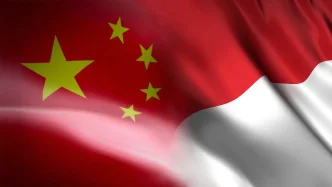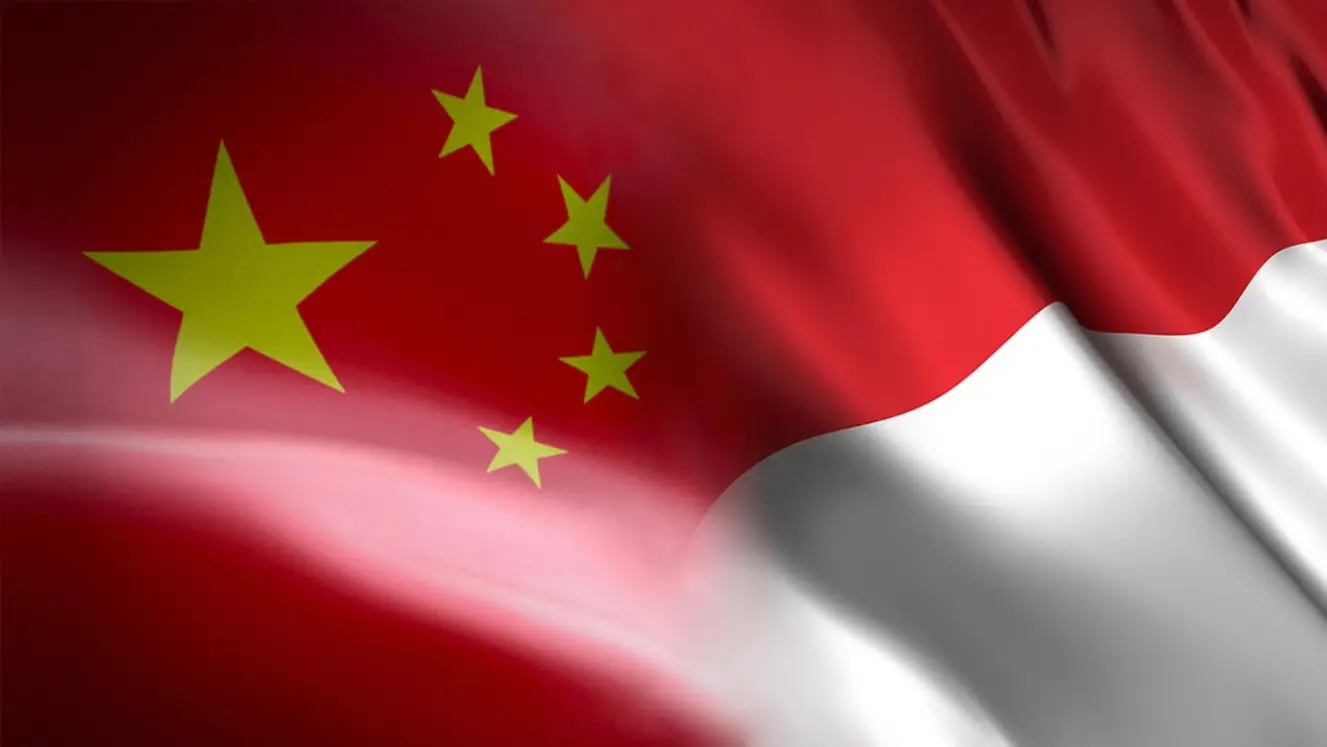In a significant step toward deepening bilateral ties, Chinese Premier Li Qiang and Indonesian President Prabowo Subianto met in Jakarta on Sunday to mark the 75th anniversary of diplomatic relations between their nations. Amid a backdrop of global economic and geopolitical shifts, the leaders pledged to enhance cooperation across political, economic, and cultural spheres, while addressing shared challenges and risks. The meeting, part of Li’s three-day official visit to Indonesia, underscored the growing strategic partnership between the two countries, with ambitious plans for infrastructure projects and regional stability.
A Milestone in Friendship
The encounter between Li and Prabowo came at a symbolically important moment, coinciding not only with the 75th anniversary of China-Indonesia diplomatic ties but also the 70th anniversary of the historic Bandung Conference of 1955, which convened leaders from Asian and African nations in the Indonesian city of Bandung to promote solidarity and anti-colonialism. Reflecting on this shared history, Li emphasized that the two nations have been steadfast allies since establishing formal relations, supporting each other through decades of change.
“China and Indonesia are good neighbors and good partners” said Li during the talks, highlighting a friendship that has only grown stronger over time. He expressed China’s readiness to elevate political trust and strategic coordination, building on what he described as the “five pillars” of collaboration: politics, economy, people-to-people exchanges, maritime affairs, and security. This framework, Li suggested, would guide the future of bilateral relations toward a more integrated and mutually beneficial partnership.
Prabowo echoed this sentiment, affirming Indonesia’s commitment to deepening its comprehensive strategic partnership with China. He noted the anniversaries as a unique opportunity to advance the vision of a China-Indonesia community with a shared future, aiming to contribute to peace and development across Asia and beyond. His remarks signaled Indonesia’s intent to balance its regional role with the benefits of closer ties to Beijing, a dynamic that could shape Southeast Asian geopolitics in the years ahead.
Economic Cooperation at the Forefront
A central focus of the discussions was the expansion of economic collaboration, particularly through China’s Belt and Road Initiative (BRI), a global infrastructure and trade program that has become a cornerstone of Beijing’s engagement with developing nations. Li urged both countries to align their development strategies and prioritize “high-quality” BRI projects, spotlighting landmark initiatives like the Jakarta-Bandung High-Speed Railway. This flagship project, often hailed as a “golden brand” of China-Indonesia cooperation, connects the capital Jakarta with the city of Bandung in West Java, cutting travel time significantly and symbolizing the potential of such partnerships.
Beyond the railway, Li proposed advancing the Regional Comprehensive Economic Corridor and the “Two Countries, Twin Parks” project, initiatives designed to boost industrial and economic connectivity. He also called for enhanced market integration and industrial coordination, alongside efforts to streamline bilateral trade and investment. Emerging sectors such as finance, new energy, the digital economy, and artificial intelligence were identified as areas for expanded collaboration, reflecting a shared interest in innovation-driven growth.
Prabowo welcomed these proposals, expressing Indonesia’s appreciation for the progress in bilateral cooperation and inviting greater Chinese investment. He highlighted agriculture, finance, and infrastructure as priority areas for deeper engagement, underscoring the potential for such projects to drive economic development in Indonesia, Southeast Asia’s largest economy. With a population of over 270 million and a strategic location along key maritime trade routes, Indonesia represents a critical partner for China’s regional ambitions.
Navigating Global and Regional Challenges
The talks were not limited to bilateral gains; both leaders addressed broader global and regional concerns. Li pointed to the rise of unilateralism and protectionism as significant threats to the international economic and trade order, urging Indonesia and other developing nations to join China in championing multilateralism and free trade. His comments appeared to reference tensions with Western powers over trade policies and economic sanctions, positioning China as a defender of a more inclusive global system.
Closer to home, the leaders discussed stability in the South China Sea, a contentious region where overlapping territorial claims have fueled disputes among several nations, including China, Indonesia, and other ASEAN members. Prabowo reiterated Indonesia’s desire to work with China to maintain peace in the area, a statement that suggests a pragmatic approach to managing tensions while deepening ties with Beijing. He also expressed interest in closer cooperation under multilateral frameworks like the Association of Southeast Asian Nations (ASEAN) and BRICS, the grouping of major emerging economies that includes China.
This focus on regional stability comes at a critical time, as ASEAN prepares for upcoming summits where issues like maritime security and economic integration are expected to dominate discussions. The China-Indonesia partnership could play a pivotal role in shaping consensus within the bloc, particularly on balancing relations with major powers like the United States and China. While Indonesia has historically sought to maintain neutrality in such dynamics, its growing economic reliance on Chinese investment may influence its strategic calculus.
People-to-People Connections and Cultural Exchange
Beyond economics and geopolitics, Li emphasized the importance of fostering people-to-people and cultural exchanges to strengthen the social fabric of China-Indonesia relations. He proposed measures to facilitate cross-border travel and deepen cooperation in areas such as food security, agriculture, poverty reduction, and health. These initiatives, he argued, would deliver tangible benefits to citizens of both nations, reinforcing the goodwill that underpins their diplomatic ties.
Such efforts are particularly relevant given Indonesia’s diverse cultural landscape and China’s interest in projecting soft power through educational and cultural programs. By prioritizing grassroots connections, both countries aim to build a foundation of mutual understanding that can withstand political or economic fluctuations. For ordinary Indonesians, projects addressing poverty and health could offer direct improvements to quality of life, while for China, such engagement enhances its image as a partner in development rather than merely an economic powerhouse.
Business Engagement and Future Prospects
On Saturday evening, prior to their formal talks, Li and Prabowo attended a reception with around 200 business representatives from both countries, signaling the importance of private-sector involvement in their shared vision. Li encouraged businesses to expand cooperation, promising that China would share its growth opportunities with Indonesia and remain committed to global openness. This message aligns with Beijing’s broader narrative of economic interdependence as a counterweight to protectionist trends elsewhere.
The signing of several bilateral cooperation documents on Sunday further cemented the outcomes of the visit. While specific details of the agreements were not disclosed, they are likely to encompass the infrastructure, trade, and cultural initiatives discussed during the talks. For Indonesia, these agreements represent not just economic opportunities but also a chance to assert its role as a regional leader, leveraging partnerships with major powers to address domestic priorities like job creation and sustainable development.
Looking Ahead: Opportunities and Uncertainties
As Li’s visit concluded, the commitments made in Jakarta point to a future of closer China-Indonesia collaboration, with implications for Southeast Asia and beyond. The emphasis on infrastructure megaprojects like the Jakarta-Bandung High-Speed Railway highlights the transformative potential of such partnerships, provided they are managed with transparency and mutual benefit in mind. At the same time, the focus on emerging fields like artificial intelligence and new energy suggests an adaptability to global trends that could position both nations as leaders in innovation.
Yet, challenges remain. Balancing economic dependence on China with Indonesia’s commitments to ASEAN unity and non-alignment will require deft diplomacy. Concerns over debt sustainability in BRI projects, as seen in other countries, may also temper enthusiasm for large-scale initiatives. Additionally, public opinion in Indonesia on Chinese investment can be mixed, with some viewing it as a driver of growth and others wary of potential overreach.
For now, the renewed pledges of friendship and cooperation offer a hopeful vision for the next chapter of China-Indonesia relations. As both nations navigate a rapidly changing world, their ability to translate high-level agreements into concrete outcomes will be closely watched by regional partners and global observers alike. How this partnership evolves—whether as a model of South-South cooperation or a flashpoint for geopolitical tensions—remains an open question, one that could define the trajectory of Asia’s future.
















